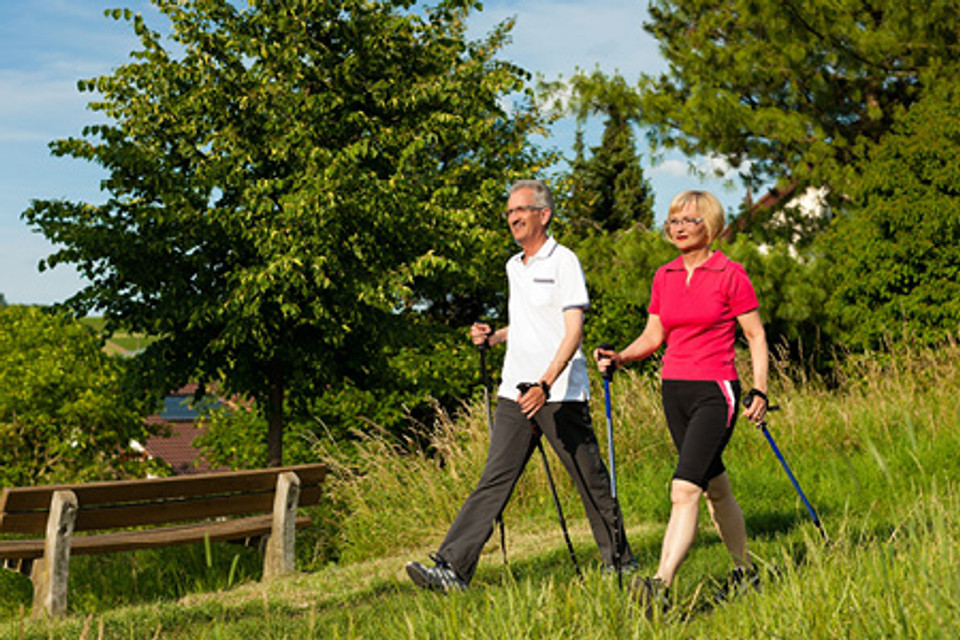Nov 3rd 2025
10 Things You Can Do Today to Improve Your Cardiovascular Health
In honor of Heart Health Month, here are 10 fairly easy things you can do today to support your heart’s health.
- EAT A RIPE PEACH
A study done at Texas A&M found that phenolic compounds in stone fruits (peaches, plums and nectarines) have anti-obesity, anti-inflammatory and anti-diabetic properties (diabetes is a risk factor for heart disease) and may also reduce the oxidation of LDL (the “bad” cholesterol). These compounds are also antioxidants. Fruits with the deepest colors, at peak ripeness, have the most antioxidants.
- EAT AN OUNCE OR TWO OF NUTS
An analysis of data from almost 120,000 men and women followed up to 30 years found that those who ate the most nuts had the least risk of dying from several diseases, including heart disease.
- DRIZZLE SOME BALSAMIC VINEGAR ON YOUR SALAD
Acetic acid in vinegar has been shown to normalize blood pressure in rats and to inhibit oxidation of cholesterol in humans.
- EAT BREAKFAST
In various studies, skipping breakfast has been associated with greater risk for weight gain, unfavorable cholesterol and triglyceride profiles, higher blood pressure, diabetes, heart disease and even fatal heart attacks.
- HAVE A GLASS OF WINE
Drinking wine and other alcoholic drinks in moderation has been connected with thinner blood (less clotting) and significant reductions in heart disease risk. Wine is particularly healthy because of the antioxidant and anti-inflammatory phenols found in grapes.
- GIVE DIET SODAS A PASS
Scientists from the University of Iowa found that women who drank two or more diet sodas daily increased their risk of having a cardiovascular event (like a heart attack or stroke) by 30% compared to those who rarely consumed diet drinks. Even worse, the more frequent diet soda drinkers were 50% more likely to die from cardiovascular-related disease.
- AVOID SECONDHAND SMOKE
According to the CDC, even brief exposure to secondhand smoke can damage the lining of blood vessels and cause your blood platelets to become stickier and more likely to form clots.
- TAKE A WALK
Like any muscle, the heart needs exercise. Exercise also provides relief from stress, an enemy of heart health. The US Surgeon General recommends adults engage in moderate-to-intense exercise for at least two and a half hours every week.
- BUT AVOID AIR POLLUTION WHEN YOU DO
Traffic and other major sources of air pollution have been linked to causing and making cardiovascular disease worse.
- DONATE BLOOD
A Finnish study found that giving blood can rejuvenate your bloodstream and keep the blood “thin.” Thick blood flows more slowly, and oxygen and other nutrients aren’t delivered as efficiently. But worse, viscous blood has an abrasive quality that damages blood vessel linings, setting the stage for inflammation, plaque formation and eventual atherosclerosis.
For a full protocol on keeping your heart healthy, see Raymond Francis’s article, “Heart Disease.”
References
- Texas A&M AgriLife Communications. Peaches, plums, nectarines give obesity, diabetes slim chance. Science Daily. June 18, 2012. Accessed July 17, 2013 at sciencedaily.com.
- Bao Y. Association of nut consumption with total and cause-specific mortality. New England Journal of Medicine. November 2013;369(21):2001-2011.
- Kondo S. Antihypertensive effects of acetic acid and vinegar on spontaneously hypertensive rats. Bioscience, Biotechnology and Biochemistry. 2001 Dec;65(12):2690-2694.
- Iizuka M. Inhibitory effects of balsamic vinegar on LDL oxidation and lipid accumulation in THP-1 macrophages. Journal of Nutritional Science and Vitaminology. 2010;56(6):421-427.
- Cahill LE. Prospective study of breakfast eating and incident coronary heart disease in a cohort of male US health professionals. Circulation. July 2013;128:337-343.
- University of Iowa Health Care Marketing and Communications. UI study finds diet drinks associated with heart trouble for older women. Posted March 31, 2014.
- Centers for Disease Control and Prevention. Smoking and Tobacco Use. Last updated March 5, 2014.
- Brook RD. AHA Scientific Statement: Air Pollution and Cardiovascular Disease. A statement for healthcare professionals from the expert panel on population and prevention science of the American Heart Association. Circulation. 2004;109:2655-2671.
- Salonen JT. Donation of blood is associated with reduced risk of myocardial infarction. The Kuopio Ischaemic Heart Disease Risk Factor Study. American Journal of Epidemiology. 1998;148(5):445-451.
 Fuel your life with the purest vitamins
Fuel your life with the purest vitamins
